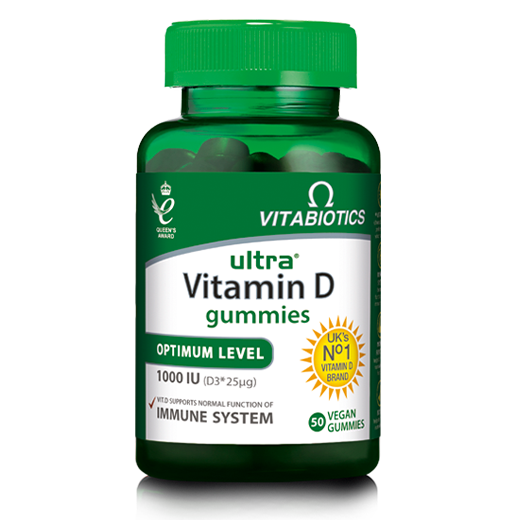It’s the body’s preferred type of vitamin D, but why is vitamin D3 so beneficial?
Vitamin D is aptly named the ‘sunshine vitamin’ thanks to the fact that it’s produced in the skin in response to sunlight.
This fat-soluble vitamin comes in two forms: vitamin D2 and vitamin D3.
We need both forms of vitamin D but vitamin D3 is the specific type that our bodies use and absorb. In fact, it is vitamin D3 that is made when our skin is exposed to sunlight, and it is far more effective than vitamin D2.
So why do we need Vitamin D and how can we get more; specifically, D3, and what exactly is it good for?
Why Do We Need Vitamin D?
Vitamin D is essential for ensuring the maintenance of normal muscles, bones and teeth.
We also need vitamin D so our body can absorb enough calcium to support bone health.
Vitamin D also contributes to the normal functioning of the immune system.
What Is Vitamin D3?
Vitamin D3 is the preferred form of vitamin D as it is actually made in the human body when we’re exposed to sunlight.
Vitamin D3 comes from animal sources whereas the other form of vitamin D - vitamin D2 - comes from plants and fungi such as mushrooms.
How Can I Get More Vitamin D3?
The main source of vitamin D, and specifically vitamin D3, is via sunlight on our skin. The NHS advise that most people can get enough vitamin D from being outside in the sun without sunscreen every day for short periods with arms, hands or lower legs exposed. However, this is only feasible from early April to the end of September, when the sun is stronger.
In the winter months, between October and March, the UK Department of Health and Social Care advises everyone to take a supplement containing 10μg of vitamin D everyday due to the UK’s lower levels of sunlight. During these months, sunlight does not contain enough UVB radiation for our skin to be able to make adequate amounts of vitamin D.
There are also some foods that provide vitamin D3, including oily fish such as salmon, mackerel, sardines, liver, eggs, and mushrooms that have been out in the sun.
In the UK, an average diet provides 3-4µg of vitamin D per day and only a little more if oily fish is consumed.
This is where sunlight and supplementation can help to increase Vitamin D intake.







Comments (0)